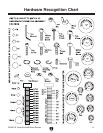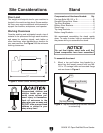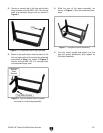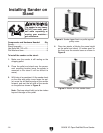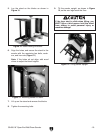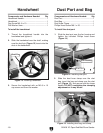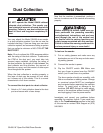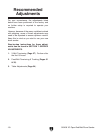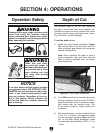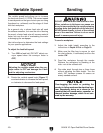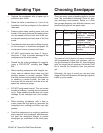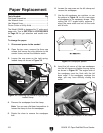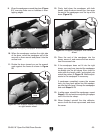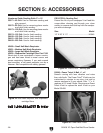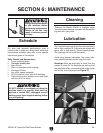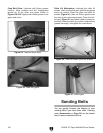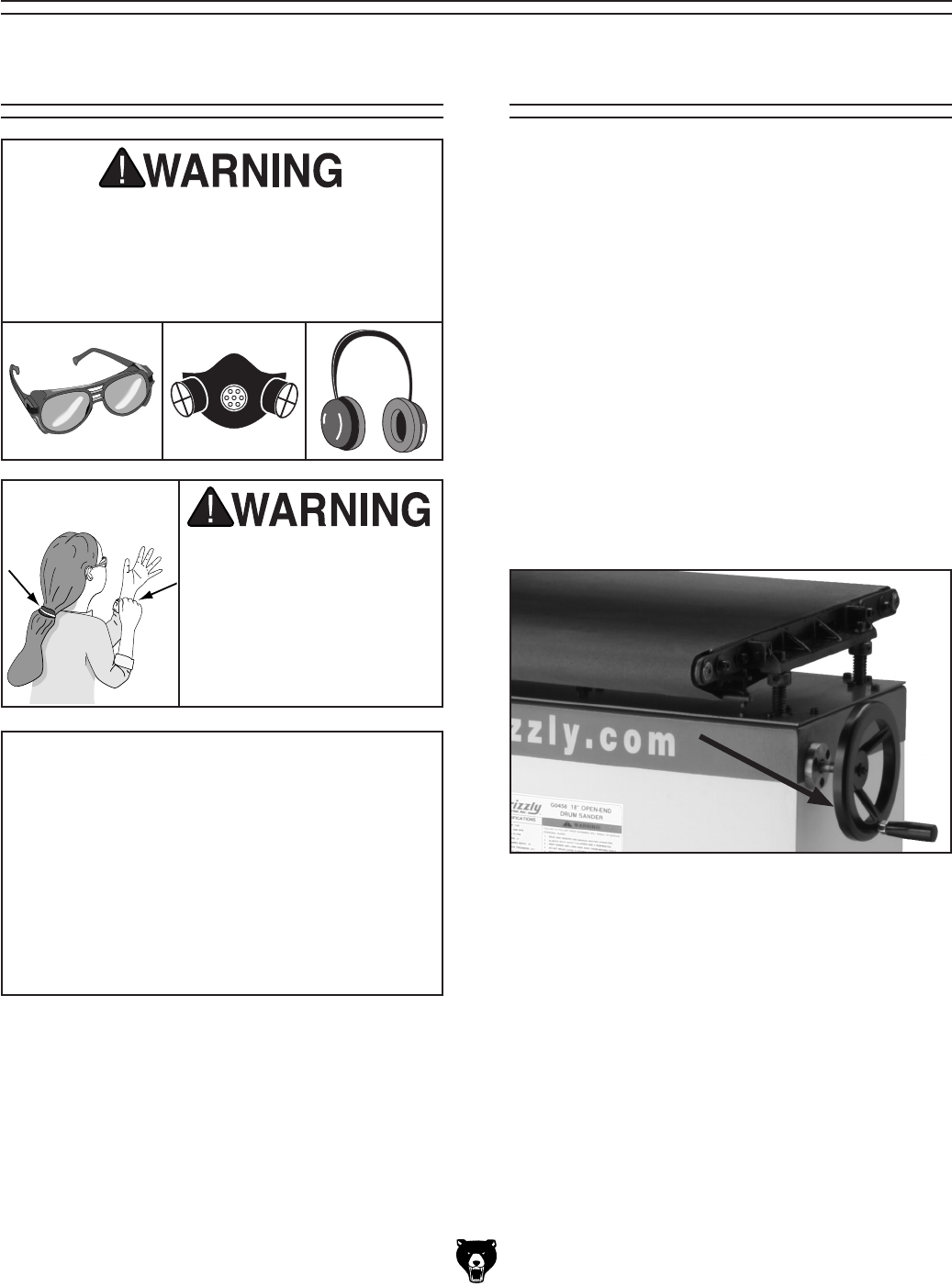
G0458 18" Open End Belt/Drum Sander
-19-
Damage to your eyes, lungs, and ears could
result from using this machine without
proper protective gear. Always wear safety
glasses, a respirator, and hearing protection
when operating this machine.
Loose hair and cloth-
ing could get caught in
machinery and cause seri
-
ous personal injury. Keep
loose clothing and long
hair away from moving
machinery.
Operation Safety
SECTION 4: OPERATIONS
NOTICE
If you have never used this type of machine
or equipment before, WE STRONGLY REC
-
OMMEND that you read books, trade maga
-
zines, or get formal training before begin
-
ning any projects. Regardless of the con
-
tent in this section, Grizzly Industrial will
not be held liable for accidents caused by
lack of training.
Depth of Cut
The optimum depth of cut will vary based on
the type of wood, feed rate, and sandpaper grit.
Attempts
to remove too much material can cause
jamming, wood burning, rapid paper wear or tear
-
ing, poor finish, and belt slippage.
To set the depth of cut
:
1. Rotate the table height handwheel (Figure
16) until the table is too low, then raise the
table, allowing a gap between the workpiece
and the sanding drum.
Note: When adjusting the table to sand a
thicker workpiece, lower and then raise the
table to remove backlash from the adjust
-
ment mechanism.
2. Turn ON the feed belt and sanding drum and
feed the workpiece into the sander. SLOWLY
raise the feed belt until the workpiece makes
light contact with the sanding drum. This
is the correct height to begin sanding the
workpiece.
3. After the initial pass, turn the handwheel up to
1
⁄4 turn (
1
⁄64" or 0.4mm)—the maximum depth
for most sanding conditions.
Note: Each full
turn of the table height handwheel raises
the feed table approx
imately 0.060" (
1
⁄16") or
1.5mm.
Figure 16. Table height handwheel.



